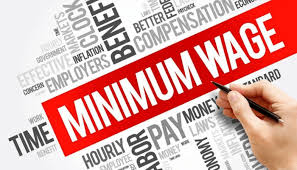Despite the October 2024 deadline for implementing Nigeria’s new N70,000 minimum wage, seven states and the Federal Capital Territory (FCT) are yet to initiate payments.
While 25 states have reportedly started or announced their plans to pay, Zamfara, Sokoto, Osun, Cross River, Imo, Plateau, and Taraba remain behind, drawing increasing frustration from workers across the country.
In Zamfara, workers continue to receive the previous N30,000 minimum wage, while Sokoto and Osun have expressed intentions to pay the updated amount but have not yet acted on these promises. Cross River and Imo are currently in talks with labor unions, and both Plateau and Taraba have made no clear commitments or statements regarding the implementation.
The delay is compounding financial struggles for many workers, who are already facing high costs for basic necessities. “We weren’t expecting our leaders to settle on N70,000 because even that isn’t enough,” a staff member from the Federal Ministry of Industry, Trade and Investment in Abuja told Punch. “The rising costs of food, fuel, and electricity in Abuja make it almost impossible to survive on this amount.”
Across the states yet to implement the new wage, similar complaints echo from civil servants. An employee of the Ayedire Local Government in Osun State said, “What can N70,000 really buy when food prices and fuel costs are skyrocketing? Life is becoming increasingly unbearable.”
Workers nationwide are urging their state governments to prioritize the implementation of the new minimum wage to alleviate their worsening financial situations. Many express skepticism that N70,000 will adequately address their needs but see the payment as a necessary step in coping with Nigeria’s tough economic reality.





























